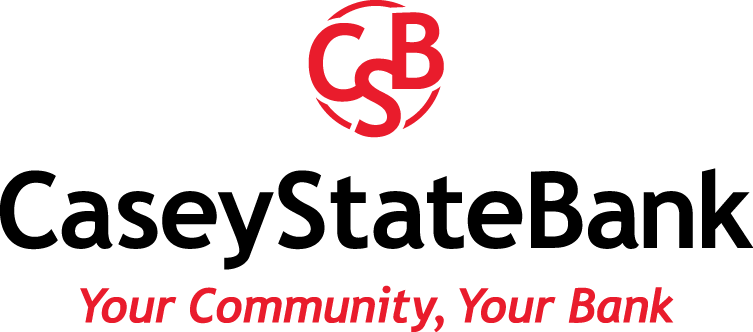Someone working on a laptop
Casey State Bank
Blog
Educational Piece of the Month: How to Stay Safe Online
As more and more business and personal transactions are completed online, cybersecurity should be a growing concern in all aspects of your life. Consumers lost 56 billion dollars to identity fraud in 2021; don’t let yourself become a statistic! Follow our tips for fraud awareness to stay safe online and protect yourself and your assets from scams.
Basic Cyber Security
Many anti-fraud measures are part of basic cyber security. You may have heard advice about not reusing passwords across different accounts when creating accounts and sharing information online. But password security should go much further than that; you must create strong passwords that are difficult to crack through software and social engineering.
Password managers can be very helpful. Password managers let you create strong passwords that are saved across your devices. When you use a password manager, you only have to remember one strong password instead of many.
If you don’t want to use a password manager, ensure you know how to make a secure password. Don’t use anything easily guessed, like your name, birthdate, address, or even a pet’s name. Make sure you’re using a mix of capital letters, numbers, and special characters – and if you can, use long-string passwords that are harder for hacking programs to crack automatically. The longer your password is, the more difficult it is for a program to hack.
It would be best if you also avoided passwords that relate to your personal information. You might not even realize it, but there are ways that clever scammers can get some essential words from you that they will feed into software as part of a password. This is called “phishing,” a common tactic of internet scammers.
Don’t Take Phishing Bait
Phishing is when somebody sends a fraudulent message designed either to trick you into revealing sensitive information or attack your devices with malicious software. Many phishing scams look very realistic; the scammer will send you an email pretending to be somebody higher up in your company or at a company you use, like your bank or the post office.
Another popular phishing scam works through text messages; scammers will pretend to be officially messaging you from Amazon or another big company. They will say something is wrong with your account or a shipment and ask for personal information. This can include your credit card number, address, account details, and password.
To avoid phishing scams, you must be aware of how the companies you interact with communicate with their customers or employees. It is highly improbable that your bank’s CEO will ask you for a vague favor via text – that sort of message is definitely a phishing scam.
It is also important to never open links in suspicious emails or text messages. These links can take you to sites that may look legitimate, but are actually designed to collect your information for the scammer. Sometimes these sites can even run malicious scripts or install malware on your device.
If you are worried that you may have been the victim of a phishing scam, one of the first things you should do is call your bank. They will be happy to help you check your account’s activity, put a hold on your account and any associated cards, and take further steps to protect your account from fraud.
Avoid Fraud
The best way to protect your financial assets and stay safe online is to understand fraud awareness. There’s an old saying that an ounce of prevention is worth a pound of cure, which is true when considering the impact of financial fraud on your bank account. By taking steps to keep your account information safe in the first place, you will be less likely to have to deal with the frustration of trying to recoup your losses.
Fortunately, consumers are becoming more aware of the impacts of fraud and learning how to protect themselves. Anti-fraud features and confidence in protecting personal information are some of the top features people look for when choosing a bank. The American Bankers Association provides resources regarding fraud awareness and education about scams. This is an excellent source of information for people who want to learn more about protecting themselves and seeing what a phishing scam email or message might look like.
Casey State Bank Protects Your Data
At Casey State Bank, we take fraud protection very seriously. We care deeply about our customers and the communities we serve, and we want you to feel that your money is in good hands. We will never make an unsolicited call requesting your personal information. Contact us immediately at 217-932-2136 if you notice any suspicious or unusual activity related to your Casey State Bank account.


